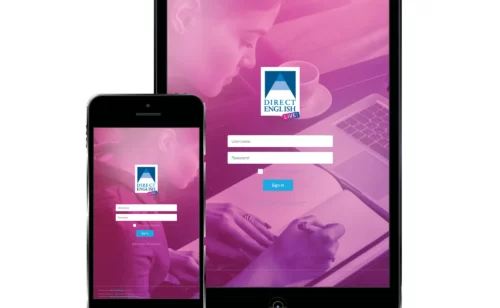
Did you know that you need more than ‘Business English’ to do business in English?
Whatever our profession (business executives, engineers, lawyers, doctors, etc.) we’re anxious to learn the kind of English that will be most useful to us in our lives as quickly as possible. We therefore expect that we can have specialized courses in English right from the start. If you’re in business you might imagine that your first lesson should begin with ‘This is a filing cabinet’ rather than ‘This is a book’.
But you would be wrong. All specialized areas of language are part of the mainstream and cannot be divorced from it. As learners we, too, have to be part of the mainstream before we can branch off into our specialized fields.
When doing business with other people, we often need general English much more than we need specialized English. Imagine a situation where two business executives have been selling telegraph poles to each other all day long. They’ve been using business terms to refer to manufacture, dates of delivery, shipping, invoicing, etc.
At the end of the day, they meet for dinner and want to avoid ‘talking shop’ as much as possible. What do they talk about? Like all other human beings, they talk about their families, their children, their career prospects, travel, commuting and a thousand and one other topics that beset us in our everyday lives.
This exchange of information creates a kind of bonding between them which is just as important (or even more important) than their business pre-occupations. When they return to their own countries, they recall each other as people first and business executives second, and in a strange way this improves their business dealings more than any other factor.
Direct English is aimed at corporate learners, but it is not a narrow Business English course.
It assumes the learner will need to use social English quite as much as specialized English. How is this achieved in the course? It is achieved by giving each part of the course a different business bias.
For example, the setting in Books 3-1 is the Sheraton Hotel in Boston.
This provides scope for social English with a bias towards business interests. So we have the character Dean, who is a young intern at the hotel. We have Mr. Bigelow who is concerned with profit margins when dealing with the hotel manager, Anne Holland.
We have all sorts of characters who appear briefly throughout the episodes reflecting different aspects of business life, from Mr. Yamamoto who wants a computer and a fax machine in his room to the Chinese trade delegation led by Mr. Sun Yu Chang that is in Boston for high-level meetings.
In Books 6-4, the setting is a clapboard house in Boston. This is the home of Richard and Nancy Hobart and their daughter, Beth. Richard is a lawyer with political ambitions, so all his activities introduce us to language with a legal and political bias.
Nancy is self-employed in the interior design business, together with her colleague, Yvonne. The language they use is connected with their trade. In addition, we have a host of additional characters who are concerned with some kind of business: the ambitious Nathan and the drop-out Danny who both work in Kinko’s, the photocopying shop.
In Books 8-7, we have a thriller about industrial espionage in the pharmaceutical industry, so the bias is towards that kind of language and the concerns of big business.
You, the learner, know more about your own particular business than we could possibly teach you. We, the course providers, can only hope to increase what you know by developing the social skills you need when using English, in contexts which have a marked business bias. Anyway, you’d be bored to death by a course that concerned itself only with invoices and bills of lading.

